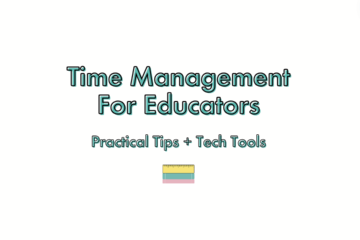What if the key to unlocking your full potential as an educator or coach wasn’t about working harder, but smarter? Executive function (EF) skills are the often-overlooked tools that can redefine how you approach your professional life, turning daily challenges into opportunities for growth. These essential skills don’t just play a role in student success—they’re critical to your success as an educator or coach, helping you achieve sustainable career satisfaction.
Executive functions are a set of mental processes that enable goal-directed behavior. They allow us to plan, organize, manage our time, adapt to change, and regulate our emotions. While often associated with student development, executive functions are equally vital for teachers and education professionals striving for balance and long-term impact. Let’s break down the key areas of executive function and explore how they can transform your daily work.
1. Working Memory
Working memory is your brain’s ability to hold and manipulate information over short periods. As an educator or coach, you rely on this skill every day, whether you’re recalling details from a recent staff meeting, adjusting lesson plans mid-class, or tracking multiple student needs at once. Strengthening your working memory can improve your ability to multitask effectively and respond to dynamic situations, ensuring you stay one step ahead.
2. Task Initiation
Procrastination isn’t just a student issue. For educators, starting a challenging task like grading a large stack of essays or developing a new curriculum can feel overwhelming. Coaches, too, may hesitate before diving into client planning or administrative work. Task initiation is the ability to overcome inertia and take that first step. Developing strategies to tackle tasks head-on can help you stay ahead of your workload and reduce stress.
3. Self-Monitoring
Self-monitoring involves assessing your performance and adjusting as needed. For teachers, this could mean reflecting on a lesson’s effectiveness and pivoting your approach if students are struggling. Coaches benefit from this skill by evaluating their methods and tailoring their strategies to better meet client needs. It’s about being self-aware and proactive in your professional growth, ensuring you’re always striving to meet your goals.
4. Flexible Thinking
Classrooms and coaching sessions are unpredictable. A technology glitch, an unexpected question, or a shift in behavior requires you to think on your feet. Flexible thinking allows you to adapt to new challenges and find creative solutions, making it an indispensable skill for maintaining a positive and productive environment.
5. Emotional Control
Teaching and coaching are emotional professions. Managing frustration, disappointment, or stress—while maintaining a calm and supportive demeanor—is crucial. Emotional control helps you respond to challenges thoughtfully rather than reactively, creating a better experience for your students or clients and fostering trust and respect.
6. Prioritization and Planning
From deciding which assignments to grade first to outlining long-term professional goals, prioritization and planning keep you focused and efficient. Coaches often juggle multiple clients and need to prioritize effectively to deliver the best outcomes. Without these skills, the competing demands of your career can quickly become overwhelming. Effective prioritization ensures you’re spending your time and energy on what truly matters.
7. Impulse Control
Impulse control allows you to think before you act. Whether it’s responding to a challenging parent email, addressing student behavior, or navigating a difficult coaching session, this skill ensures your actions align with your professional values and goals.
8. Organization
An organized classroom, coaching practice—and mind—sets the stage for success. From managing lesson materials to keeping track of meetings and deadlines, organization helps you maintain a sense of control and clarity. It also models essential skills for your students and clients, creating a ripple effect of positive outcomes.
Why EF Matters for Your Career Longevity
When educators and coaches struggle with executive function, the demands of their professions can lead to burnout, reduced effectiveness, and diminished job satisfaction. By developing your EF skills, you’re not just enhancing your teaching or coaching—you’re creating a foundation for a sustainable and rewarding career.
If you’re ready to take your executive function skills to the next level, consider joining our course designed specifically for educators and coaches. You’ll gain actionable strategies to strengthen these critical areas, empowering you to lead with confidence, balance, and purpose.



